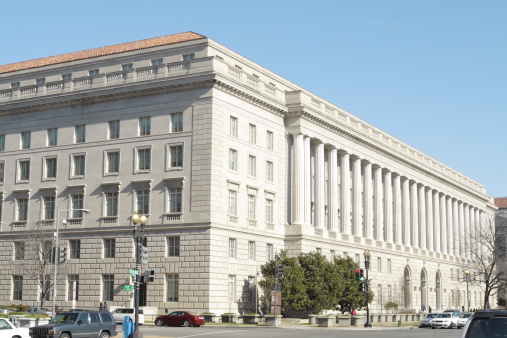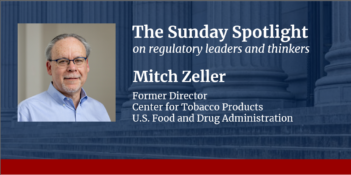
Pending Supreme Court tax case raises key statutory interpretation issue.
In January, the Supreme Court will hear arguments in yet another tax case raising a question about the standard of review for Treasury and Internal Revenue Service (IRS) interpretations of the Internal Revenue Code. In United States v. Quality Stores, Inc., No. 12-1408, the interpretive issue before the Court is whether severance payments are “wages” subject to federal payroll taxes under § 3121(a) of the tax code. The government has relied substantially on revenue rulings issued by the IRS over several decades as supporting its position.
Revenue rulings are official and authoritative but informal guidance documents published by the IRS to communicate its interpretations of the tax laws. While not raised as an issue by the parties and barely discussed by recent circuit court decisions analyzing this section of the tax code, the standard of review for revenue rulings is an unresolved, hotly debated, and surprisingly complicated issue.
The Court has not squarely addressed whether revenue rulings are eligible for judicial review under the highly deferential standard articulated by the Court in Chevron U.S.A. Inc. v. Natural Resources Defense Council, Inc. or the lesser judicial respect counseled by the Court in Skidmore v. Swift & Co. According to the Court’s decision in United States v. Mead Corp., the answer depends upon whether revenue rulings carry “the force of law.” The Court’s past statements regarding deference and revenue rulings are inconclusive, and the lower courts have struggled to resolve the question, with mixed results.
Whether Chevron or Skidmore provides the appropriate evaluative standard for revenue rulings is a challenging question. At first blush, revenue rulings look like the sort of informal guidance typically associated with Skidmore review. The IRS issues revenue rulings without public notice and opportunity for comment. Almost 50 years ago, in Dixon v. United States, the Court concluded that revenue rulings “have only such force as Congress chooses to give them, and Congress has not given them the force of law.” For some circuit courts, these elements have lead to a conclusion that Skidmore review is more appropriate.
Digging deeper changes the picture. Dixon is an old case. Two terms ago, in United States v. Home Concrete & Supply, LLC, another tax case, the Court cautioned against ascribing post-Chevron meaning to pre-Chevron judicial use of doctrinal terminology. Also, the legal status of revenue rulings has changed since Dixon. As a result of 1991 Treasury regulations, taxpayers and tax return preparers now face financial penalties for failing to comply with revenue rulings. Although it has not done so in the present case, the government in other post-Mead litigation has noted this penalty potential in analogizing revenue rulings to Treasury regulations and claiming that revenue rulings represent an exercise of congressionally delegated power to act with the force of law. For these reasons, revenue rulings seem to carry the force of law and qualify for highly deferential Chevron review.
Nevertheless, the very characteristics of revenue rulings that seemingly entitle them to Chevron review simultaneously categorize revenue rulings as legislative rules subject to Administrative Procedure Act notice-and-comment rulemaking requirements. Yet, the IRS did not use notice-and-comment rulemaking when it issued the revenue rulings cited by the government in this case, and in fact never uses those procedures for revenue rulings. In other words, revenue rulings as a class always violate APA procedural requirements. Agency rules that systematically violate APA procedural requirements in this way ought not to be eligible judicial deference under Chevron.
Rather than invalidating all revenue rulings, the Court may be tempted instead to throw up its hands at the mess and call for Skidmore review as a means of achieving rough justice. After all, Quality Stores involves a longstanding and official IRS interpretation that the taxpayer knew applied to their facts and circumstances, as evidenced by their paying the tax and suing for a refund. In such a case, less deferential Skidmore review would seem to be ideal.
However, this approach would be flawed for two reasons. First, employing Skidmore rather than Chevron review would conflate a standard of review with a remedy. The problem that revenue rulings pose is not that they carry the force of law and are entitled to Chevron deference, or that they lack the force of law and are eligible only for Skidmore respect. Rather, revenue rulings’ flaw is their lack of public notice and opportunity for comment after Treasury and IRS decided to promulgate regulations pulling revenue rulings within the ambit of the IRC’s penalty provisions. A less deferential standard of review is not a traditional remedy for procedurally invalid agency rules.
Second, extending Skidmore review to revenue rulings would not be doctrinally sound. Mead and its progeny firmly associate Chevron deference with congressional delegation and agency actions that carry legal force. Given the characteristics that revenue rulings exhibit, beginning but by no means ending with their penalty potential, concluding that revenue rulings lack the force of law would undermine that association, and thus the very premise of Mead. By contrast, invalidating all revenue rulings as per se unreasonable would achieve an arguably similar end, but through a more doctrinally consistent means. Under Skidmore review, the Court rather than the agency becomes the primary interpreter of the law. In the absence of a valid revenue ruling driving the outcome of the Quality Stores, the Court would find itself in much the same position of interpreting the IRC on its own, but through reasoning more consistent with its precedents concerning Mead, Chevron, the APA, and the force of law.
The standard of review for revenue rulings is a jurisprudential mess with no easy or clean resolution. Yet, ultimately, the fault for the difficulty lies with the government. With revenue rulings, Treasury and the IRS have tried to have their cake and eat it, too. They enjoy the ease and flexibility of revenue rulings as informal guidance, yet they want taxpayers to feel legally bound to follow the legal interpretations contained within. Treasury and the IRS imposed penalties for noncompliance with revenue rulings, yet they refuse to subject the interpretations that revenue rulings advance to notice-and-comment rulemaking. The circumstances surrounding revenue rulings are legally untenable and damaging to the integrity of the tax system.




